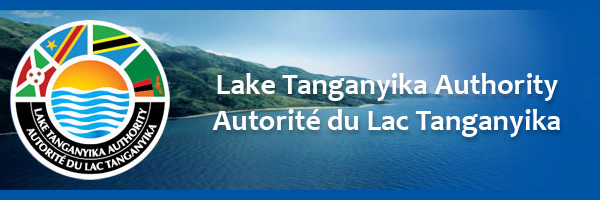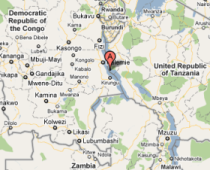News
- Here we could publish brief news about the project, e.g. on workshops taking place, scheduled activities, hiring of staff, etc. Old news should be archieved.
AWARENESS WORKSHOP ON SUSTAINABLE MANAGEMENT OF FISHERIES FOR FISHING COMMUNITIES IN BURUNDI
The objectives of the workshop are to initiate awareness among fishing communities on the issues of sustainable use of living and non-living resources of Lake Tanganyika, and refine the analysis of the impact of the fishing business management of these resources. The other objective is to produce videos of short stories in four languages on key issues related to the management and conservation of Lake Tanganyika. The videos will be used to educate people about the dangers of unsustainable practices and promote the use of best practices.
UNECE Water Convention could offer solutions to African countries for shared water resource management
UNECE Water Convention could offer solutions to African countries for shared water resource management
The NIGLAS Hosted a Training Workshop on Water Quality Monitoring and Lake Basin Ecosystem Management
.
New Guide to some invasive plants affecting Lake Tanganyika
Lake Tanganyika Authority in collaboration with UNDP/GEF Project and IUCN Invasive Species Initiative organized a workshop on invasive species affecting Lake Tanganyika at Kibunoah Hotel, in Bujumbura - Burundi, for the Burundi and D. R. Congo Technical Teams on Environmental Issues. "From this 23 rd to 24 th August, 2012, you will be involved to how you can control species that have become invasive and be trained how you can prevent new invasions in order to develop a Monitoring Programme for Invasive Species for the four riparian countries of Lake Tanganyika” said Mr. Gabriel Hakizimana, Director of Environment of Lake Tanganyika Authority – LTA.
Optimized extraction of daily bio-optical time series derived from MODIS/Aqua imagery for Lake Tanganyika, Africa
Standard MODIS Aqua Ocean Color products were found to not provide a suitable calibration for high altitude lakes such as the Lake Tanganyika . Our results show that for the geographical, atmospheric and optical conditions of Lake Tanganyika : (i) a coastal aerosol model set with high relative humidity (90%) provides a suitable atmospheric correction;
Possible effects of global climate change on the ecosystem of Lake Tanganyika
Any change in the air temperature, wind speed, precipitation, and incoming solar radiation induced by increasing greenhouse gasses and climate change will directly influence lakes and other water bodies. The effects of a slight increase in lake water temperature on the Lake Tanganyika ecosystem might be mitigated by increased windiness, if the latter was sufficient to induce greater mixing.
Burundi industrialists called to contribute to protecting water resources
It was during a discussion workshop on the main provisions of the water code in Burundi that was organised by the Ministry of Water, Environment, Land and Urban Planning, in partnership with the Sectoral Programme Water and Sanitation of the Federal German Republic. The water code being disseminated for the implementation of the national water policy adopted in 2009, proves that water management and use are based on 10 key principles.
Celebration of Lake Tanganyika National Day, 2012 edition
"If we do not take care, many human activities pose a threat to Lake Tanganyika," noted Mr. Gabriel Toyi, representing the second Vice-President of the Republic of Burundi, in the ceremonies of Lake Tanganyika National Day, July 22 nd each year. Dr. Henry Mwima, the Executive Director of Lake Tanganyika Authority (LTA) has recognized the efforts made by Burundi in protecting the lake and appealed to other Lake Tanganyika riparian countries (DRC, Tanzania and Zambia) to emulate the example set by the Government of the Republic of Burundi by setting aside one day to celebrate the unique and shared heritage: Lake Tanganyika.
Harmonisation des mesures de l’impact environnemental de l’élevage
Les directives et indicateurs communs d’évaluation permettront de mieux comprendre les impacts et d’élaborer des politiques
LTA and TNC: towards joint efforts to protect Lake Tanganyika
The collaboration area includes exploring opportunities to share resources on collaborative projects, in matters relating to fisheries management and environmental conservation through cooperative efforts.
The 7th Great Lakes of the World (GLOW) is being co-hosted by LTA and AEHMS at Bujumbura
The Lake Tanganyika Authority (LTA) and the Aquatic Ecosystem Health and Management Society (AEHMS) of Canada co-hosted the 7th Great Lakes of the World (GLOW) Conference that is being held from 17th – 20th June, 2012 in Bujumbura, Burundi. The opening ceremonies were lead by Honorable Odette Kayitesi, Minister of Agriculture and Livestock of the Republic of Burundi.
The fishing pressure is an increasing threat to the sustainability of fishery resources in Lake Tanganyika
Interventions proposed for developing sustainable fisheries in this lake are such as reviewing and updating the national components of the Fisheries Management Frame Plan, developing and implementing fishing license process, improve the involvement of local communities in fisheries management, and promote sustainable fisheries alternative livelihoods.
The Lake Tanganyika basin affected by impacts of climate changes
Modifications related to climate changes could have increasing impacts on the aquatic and terrestrial ecosystems in Lake Tanganyika basin, note Gaspard Ntakimazi, Professor at the University of Burundi in the “National Action Plan (NAP) for implementing the Strategic Action Programme (SAP) for protecting the biodiversity and the sustainable management of natural resources in Lake Tanganyika basin”.
The National Action Plan for sustainable management of resources in Lake Tanganyika basin in Burundi was validated.
Representatives of the Ministry of Water, Environment, Land and Urban Planning, the Ministry of Home Affairs, Ministry of Mines and Energy, Lake Tanganyika Authority, local environmental NGOs and some environmental development partners (UNDP, Global Environment Facility – GEF and UNOPS) validated, after some amendments, the document of National Action Plan (NAP) for Lake Tanganyika natural resources management.
A new initiative for the Lake Tanganyika basin : the LT-WATSAN Programme
Initied by UN-Habitat, the Lake Tanganyika - Water, Sanitation and Environmental Management Project (LT-WATSAN Project) will take full advantage of experiences and lessons learnt from Lake Victoria - WATSAN under UN-HABITAT, indicated Mr. Robert GOODWIN, Chief LV Section WATSAN / UN HABITAT.
Need for biological control of invasive plants affecting Lake Tanganyika in Burundi
The association Greenbelt Action for Environment (ACVE) and Lake Tanganyika Authority (LTA), in collaboration with the International Union for the Conservation of Nature (IUCN), UNOPS, and the UNDP/GEF Project, organised, on Thursday May 3 rd , a workshop on biological control of invasive plants affecting the Lake Tanganyika ecosystem in Burundi.
Invasive species and climate change: an agronomic perspective
However, recent events on the global stage, particularly in regard to the number of food riots that occurred during 2008, even at a time of record harvests, have prompted additional interest in those factors, including invasive species, which could, through climatic uncertainty, alter food production.
Document Actions













